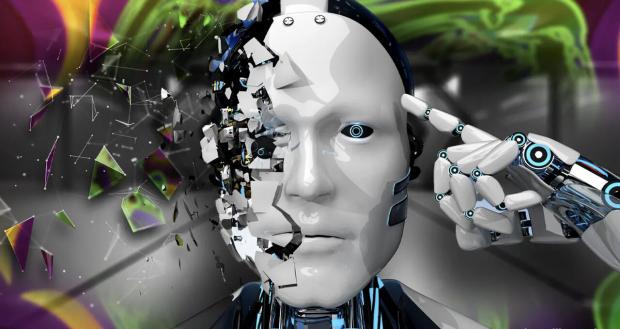
Breaking News
 Arizona's fully autonomous homes: off-grid, no hookups
Arizona's fully autonomous homes: off-grid, no hookups
 The 22 surprising ways Musk and Vivek's DOGE can save over one TRILLION dollars
The 22 surprising ways Musk and Vivek's DOGE can save over one TRILLION dollars
 Secrets of Earth's 'second moon' revealed
Secrets of Earth's 'second moon' revealed
 The Poster Child Of Europe's Electric Car Future Just Filed For Bankruptcy After Burning...
The Poster Child Of Europe's Electric Car Future Just Filed For Bankruptcy After Burning...
Top Tech News
 Forget Houston. This Space Balloon Will Launch You to the Edge of the Cosmos From a Floating...
Forget Houston. This Space Balloon Will Launch You to the Edge of the Cosmos From a Floating...
 SpaceX and NASA show off how Starship will help astronauts land on the moon (images)
SpaceX and NASA show off how Starship will help astronauts land on the moon (images)
 How aged cells in one organ can cause a cascade of organ failure
How aged cells in one organ can cause a cascade of organ failure
 World's most advanced hypergravity facility is now open for business
World's most advanced hypergravity facility is now open for business
 New Low-Carbon Concrete Outperforms Today's Highway Material While Cutting Costs in Minnesota
New Low-Carbon Concrete Outperforms Today's Highway Material While Cutting Costs in Minnesota
 Spinning fusion fuel for efficiency and Burn Tritium Ten Times More Efficiently
Spinning fusion fuel for efficiency and Burn Tritium Ten Times More Efficiently
 Rocket plane makes first civil supersonic flight since Concorde
Rocket plane makes first civil supersonic flight since Concorde
 Muscle-powered mechanism desalinates up to 8 liters of seawater per hour
Muscle-powered mechanism desalinates up to 8 liters of seawater per hour
 Student-built rocket breaks space altitude record as it hits hypersonic speeds
Student-built rocket breaks space altitude record as it hits hypersonic speeds
 Researchers discover revolutionary material that could shatter limits of traditional solar panels
Researchers discover revolutionary material that could shatter limits of traditional solar panels
Top Stanford 'Misinformation Expert' Accused Of Using AI To Fabricate Evidence: Court Filing

For a $600 an hour expert witness fee, Stanford professor Jeff Hancock, whose biography claims he's "well-known for his research on how people use deception with technology," apparently used deception with technology by citing numerous academic works that do not appear to exist, the Minnesota Reformer reports.
At the behest of Minnesota Attorney General Keith Ellison, Hancock recently submitted an affidavit supporting new legislation that bans the use of so-called "deep fake" technology to influence an election. The law is being challenged in federal court by a conservative YouTuber and Republican state Rep. Mary Franson of Alexandria for violating First Amendment free speech protections.
Hancock's expert declaration in support of the deep fake law cites numerous academic works. But several of those sources do not appear to exist, and the lawyers challenging the law say they appear to have been made up by artificial intelligence software like ChatGPT.
As an example, the declaration cites a study called "The Influence of Deepfake Videos on Political Attitudes and Behavior," which claims it was published in the Journal of Information Technology & Politics in 2023 - however there's no study by that name in said journal, and academic databases have no record of the study existing.
The specific journal pages referenced are from two completely different articles.
"The citation bears the hallmarks of being an artificial intelligence (AI) 'hallucination,' suggesting that at least the citation was generated by a large language model like ChatGPT," wrote the plaintiffs' attorneys. "Plaintiffs do not know how this hallucination wound up in Hancock's declaration, but it calls the entire document into question."
Libertarian law professor Eugene Volokh found another fake entry - a study titled "Deepfakes and the Illusion of Authenticity: Cognitive Processes Behind Misinformation Acceptance," which doesn't appear to exist.
According to the Reformer, if the citations were fabricated by AI, Hancock's entire 12-page declaration may have been entirely cooked up.



